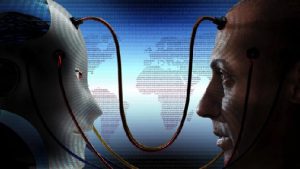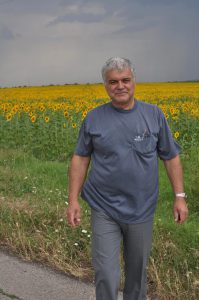Modern scientists claim that they have already determined the directions that will enable humanity to make a breakthrough into its radiant future: nanomaterials, smart houses, travelling to other planets, cloning various creatures, storing information in DNA-like media, artificial intelligence, robots and biorobots, studying ocean depths and the depths of Space…
I dare say that most of the state-of-the-art technologies created today are so significant that their creators may erroneously believe that it is the development of these technologies that will allow their owners to “rule ‘Our’ World” in the nearest future.
But, from my point of view (and, unfortunately, not only mine), modern mankind currently has no future. All new technologies will only lead the modern mankind to collapse. The more revolutionary the new technology is, the faster it leads the modern humanity to the end.
It is not because these technologies are harmful, but solely because people use the fruits of any technological revolution primarily for such purposes as arms race, seizures of power, turning people into ‘zombies’, etc.
Invention of a wheel and a knife proved to be a much less dangerous technology for humans than creation of new viruses and bacteria, climate and chemical weapons over the past 100 years. And most importantly, the inventors (creators) of these technologies are not able to prevent such use in any way.
Many modern researchers realize the current situation and consider it to be hopeless so far, since up to the present there have not been found any acceptable solutions for mankind’s exit from its “nosedive” to death…
While investigating prospects for development of the mankind, I carried out many imaginary experiments, and as a result I “saw” the following main causes of this problem:
-
Cause #1: Most people consider themselves “the center of the Earth”, kind of “ kings of Nature” and don’t realize their true place in the hierarchy of the Universe. These earthlings honestly believe that they are at the top of the “food chain” and they can do whatever they want with complete impunity throughout their short life on the planet Earth.
-
Cause #2: People haven’t yet realized that a human being actually is a kind of an essence of field nature, which is “dressed” in a material body. This body is only a part of a human being, and it’s far from being the most essential one.
The result obtained in this experiment clearly showed thatno technological improvements of human bodies and the environment of these bodies are able to change the people’s attitude towards the Nature (the Universe) and to all its inhabitants, including their own species…
That is why, it is not the body of a person that should be “altered” – it is, first of all, people’s worldview, way of thinking, meaning of their lives. Change of the outlook will automatically lead to replacement of current dominant values (money, power, fame…) with new ones, such as harmonious relations with the objects of the Universe and with all its inhabitants. These new values will determine behavior of people and their social relations in the long run. On this basis, the direction of the modern mankind’s development will change automatically.
“You are looking into the interlocutor’s eyes and realize that a bag of meat and bones cannot radiate an intelligent look. You see the flesh, but you communicate with an invisible spiritual essence.” Yuri Larichev, writer and philosopher
Obtaining a strictly scientific proof of immortality of a human Personality and its consciousness and disclosing it to the general public (by means of demonstrating so-called ‘miracles’) should become the cornerstone of this crucial task.
At present, due to the conservatism of the official science, even studies in these areas are considered absurd, and any publications on such topics in scientific journals are kind of a taboo and are considered “undesirable”…
“The consciousness, which is already transforming and organizing a hefty chunk of “our” solar system, is denied objective existence only because traditional science doesn’t know how to approach it, didn’t create an appropriate conceptual apparatus and scientific tools for its study, and it is in no hurry to correct these mistakes and to overcome the arising difficulties.” George Somov, “Matter of Consciousness & Consciousness of Matter (Материя Сознания и Сознание Материи)“
This situation has led to the fact that even ‘crazy investors’ “do not see the advisability” of investments in this field. Investing in human development has become completely unprofitable, as the payback period can reach 30-60 years. Investors don’t realize that they themselves are blocking the most promising areas of investment in the history of “modern mankind”.
“If there is no immortality, then neither is the remorality: all is permitted.” Vladimir Bekhterev, “Immortality From the Scientific Point of View”
“It sounded an excellent plan, no doubt, and very neatly and simply arranged; the only difficulty was, that she had not the smallest idea how to set about it…” Lewis Carroll, “Alice in Wonderland”
I do have an idea how to.


